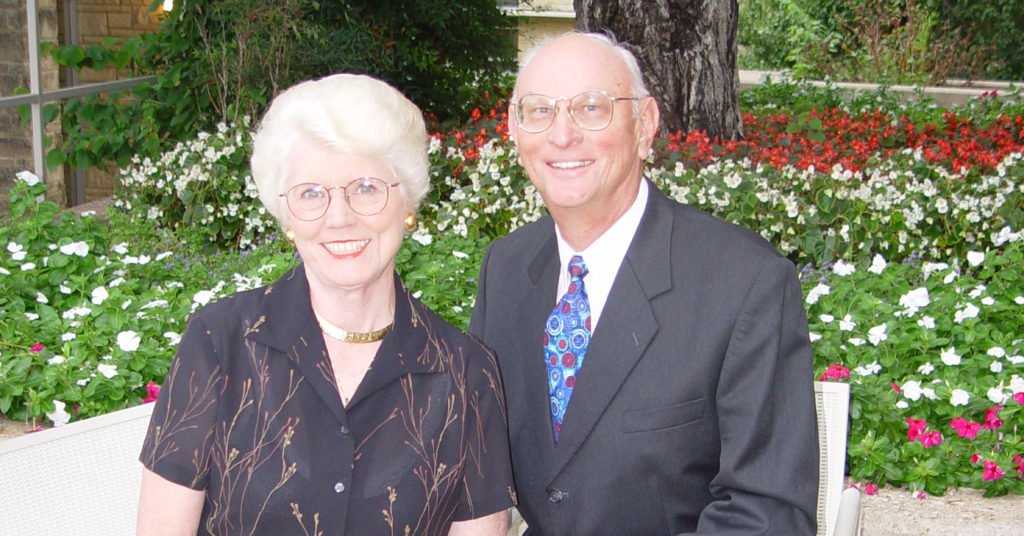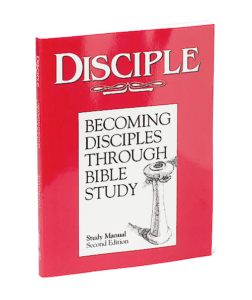 Times change. We didn’t have a printed Bible until Martin Luther and Gutenberg gave us print in the 16th century. Now we are a busy, mobile society using email and computers. But that hasn’t changed our need for connection to God.
Times change. We didn’t have a printed Bible until Martin Luther and Gutenberg gave us print in the 16th century. Now we are a busy, mobile society using email and computers. But that hasn’t changed our need for connection to God.
We still desperately need knowledge of God through Scripture – and Christian fellowship through communication.
So for those who are unable to meet face-to-face weekly for 2 – 2.5 hours, we have designed an online Wesley class meeting – limited to about 12 persons, with freedom to ponder the questions and discuss the spiritual meanings.
Each week I will help you explore some of the deep spiritual issues that Julia and I thought and prayed about when we wrote the Disciple Manual. I’ll lead you through the whole Bible week by week. I’ll help you focus on key questions for you to discuss with others in your group. Hopefully, together we’ll become even more devoted disciples of Jesus Christ.
-Bishop Richard Wilke, Author of DISCIPLE Bible Study
The History of DISCIPLE
“As a pastor in the early 1980s, I became aware how isolated and lonely people were becoming and how ignorant they were of the Bible. We started new adult Sunday School classes, but that only reached a few- and it was hard to find teachers. Then I remembered how John Wesley reached out to people with little class meetings – a handful of folks – many poorly educated, farmers and hard-working people – meeting in homes. They would gather like the early Christians in Acts 2:42 – “and devote themselves to the apostle’s teaching, to the breaking of bread, the fellowship.” The “apostle’s teaching” meant scripture study and the “koinonia” meant sharing life’s experiences together. I dreamed of starting small group Bible studies- but had neither the materials nor the lay leadership to do it.
 Then one day, after I became a Bishop, I received a phone call from Nellie Moser, a new biblical educator for the UMC Publishing House. She said she had been talking to Jim Beal, one of my key district superintendents and he said he was interested in developing a small group Bible study plan. The next thing I knew, my wife, Julia, and I were in Nashville sharing our dream. We wanted small groups led by “facilitators,” not “teachers,” with participants reading Bible passages daily in their homes and coming together once a week to share. When I finished, I awaited questions, and debate, but I encountered dead silence. Then Mr. Feastor, President of the UMPH, simply said, “Let’s do it.” Soon we were attending a gathering of scholars at a retreat center in Flower Mound, Texas. Present were top scholars and educators such as Albert Outler who knew the Wesley class meeting history, Dick Murray, who understood how adults learn, how they encounter and appropriate truth, and many others.
Then one day, after I became a Bishop, I received a phone call from Nellie Moser, a new biblical educator for the UMC Publishing House. She said she had been talking to Jim Beal, one of my key district superintendents and he said he was interested in developing a small group Bible study plan. The next thing I knew, my wife, Julia, and I were in Nashville sharing our dream. We wanted small groups led by “facilitators,” not “teachers,” with participants reading Bible passages daily in their homes and coming together once a week to share. When I finished, I awaited questions, and debate, but I encountered dead silence. Then Mr. Feastor, President of the UMPH, simply said, “Let’s do it.” Soon we were attending a gathering of scholars at a retreat center in Flower Mound, Texas. Present were top scholars and educators such as Albert Outler who knew the Wesley class meeting history, Dick Murray, who understood how adults learn, how they encounter and appropriate truth, and many others.
Soon after, Julia and I were asked to develop and write the study in addition to our episcopal duties. We did it with these scholars and our brilliant editor, Nellie Moser, guiding us all along the way.
After two or three years with phenomenal participation across the US, graduates of DISCIPLE started asking “What’s Next?” So we had another consultation. What’s next? Goodness, we had studied the whole Bible! Then after a silence, Dr. Bill Powers spoke up, “You know, the Hebrew Bible is clearly divided with three parts: Torah (Pentateuch), Prophets, and Wisdom. What if we balanced those passages with appropriate New Testament material and had three clear follow up DISCIPLE studies?” The response was spontaneous, overwhelming, and Julia and I spent the next several years compiling those powerful studies. Today, over 3 million people around the world have studied DISCIPLE. Many graduates have given their hearts to Jesus. A good number of men and women have gone to seminary and entered the ministry.
It has been a good thing!”
Bishop Richard Wilke
Listen to Bishop Wilke talk about the beginnings of DISCIPLE in this audio interview.
Continuing the story
Over the years, the DISCIPLE series has reached over 3 million people and crossed all boundaries: embraced by every mainstream denomination, introduced into prisons, and welcomed into 20 countries with translations in Spanish, Russian, German, Mandarin, and more.
